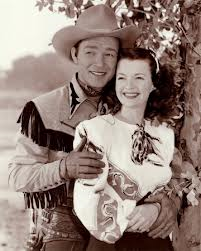-----
…. born on May 11,1982, he was 31-years-old when he passed away. Cory Allan Michael Monteith was born on May 11, 1982 in Calgary, Alberta, Canada. He was raised by their mother in Victoria, British Columbia. He began delving into drugs and alcohol, which in turn affected his studies and school attendance.
After attending 16 different schools, including alternative programs for troubled teens, he eventually quit school at the age of 16. By that time, his drug and alcohol addiction had increased and Monteith turned to petty crimes. He was sent to rehab at 19. Monteith began his acting career in Vancouver, British Columbia.
He played minor roles in Final Destination 3, Whisper, and Deck the Halls. He had a recurring role in Kyle XY. He also made guest appearances in television serials as Smallville, Supernatural, Flash Gordon, Stargate Atlantis, and Stargate SG-1. In 2005, he appeared in Killer Bash.
 The following year, he made a brief appearance in Urban Legend: a Bloody Mary. In 2007, he starred in the MTV series Kaya. In April 2010, Monteith was cast in the romantic comedy movie Monte Carlo
The following year, he made a brief appearance in Urban Legend: a Bloody Mary. In 2007, he starred in the MTV series Kaya. In April 2010, Monteith was cast in the romantic comedy movie Monte CarloIn 2009, Monteith was cast in the Fox series Glee as Finn Hudson. When Glee was being cast, Monteith's agent submitted a video of him drumming with some pencils and Tupperware containers. When it was pointed out that auditioning actors for Glee with no theatrical experience were required to prove they could sing Monteith submitted a second, musical tape, in which he sang "a cheesy '80s music video-style version" of REO Speedwagon's "Can't Fight This Feeling." He then attended a mass audition in Los Angeles.
"I was like a lot of kids, looking for something to be interested in. Something to be passionate about,” He once said after winning a part on the show. “All you need is permission; not only for Glee, but for anything in life."
On the show Finn is the star quarterback of his high school football team, and risks alienation from his friends by joining the school’s glee club. The character must deal with his attraction to both head cheerleader Quinn Fabray (Dianna Agron) and glee club star singer Rachel Berry (Lea Michele), and his storylines increasingly focus on his relationship with them both.
Monteith was staying at the Fairmont Pacific Hotel and missed his check out time. Just after noon, he was found dead and alone in his room on the 21st floor. On March 31, 2013, it was announced that Monteith had voluntarily admitted himself into a treatment facility for substance addiction.
According to Acting Vancouver Police Chief Doug LaPard, there are no indications of foul play and they are not discussing what was found in the room. The cause of death was later revealed as a toxic mix of heroin and alcohol. Monteith checked in July 6 and according to police, he was not staying with his girlfriend, Glee co-star Lea Michele.
#####






















